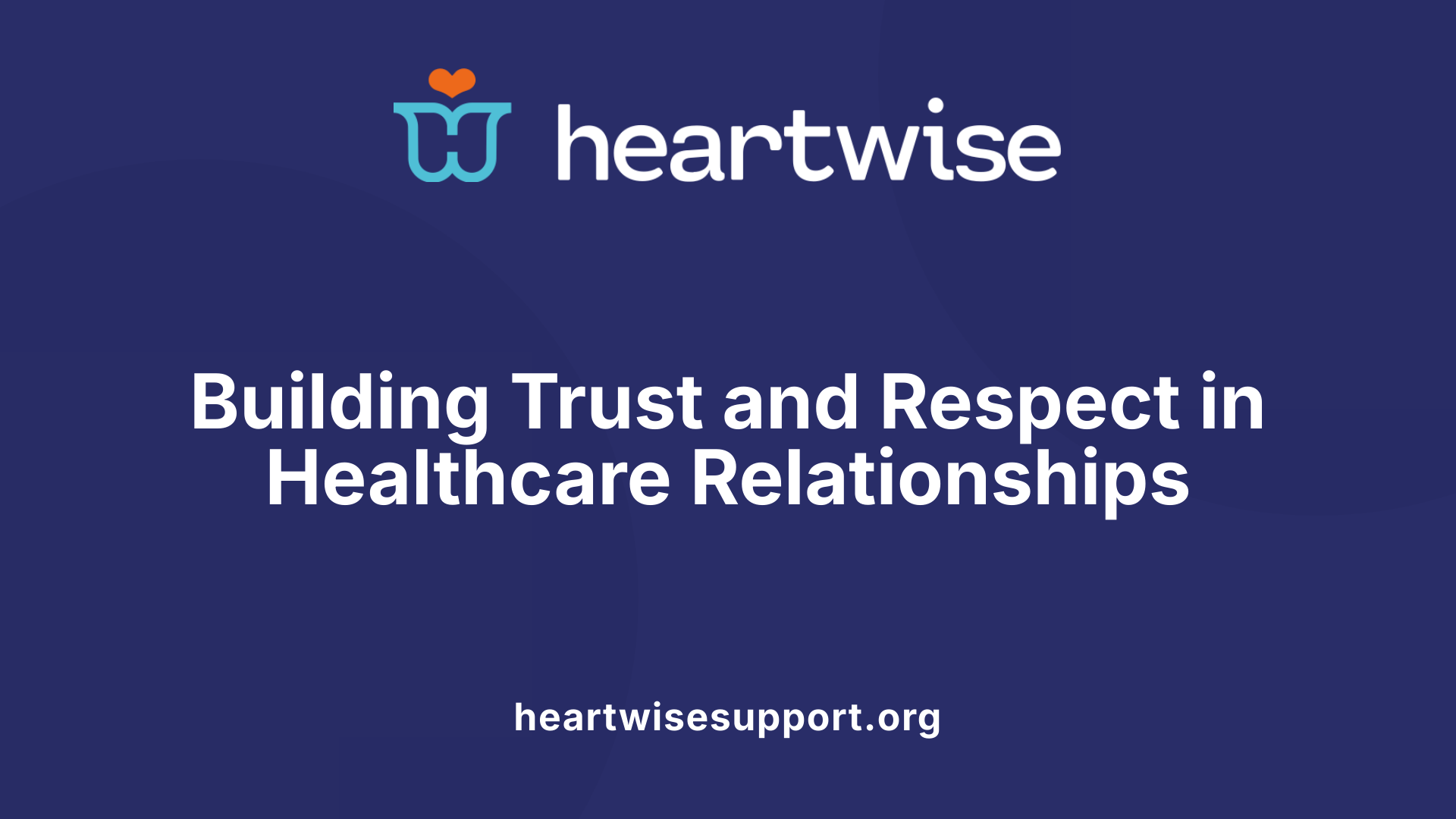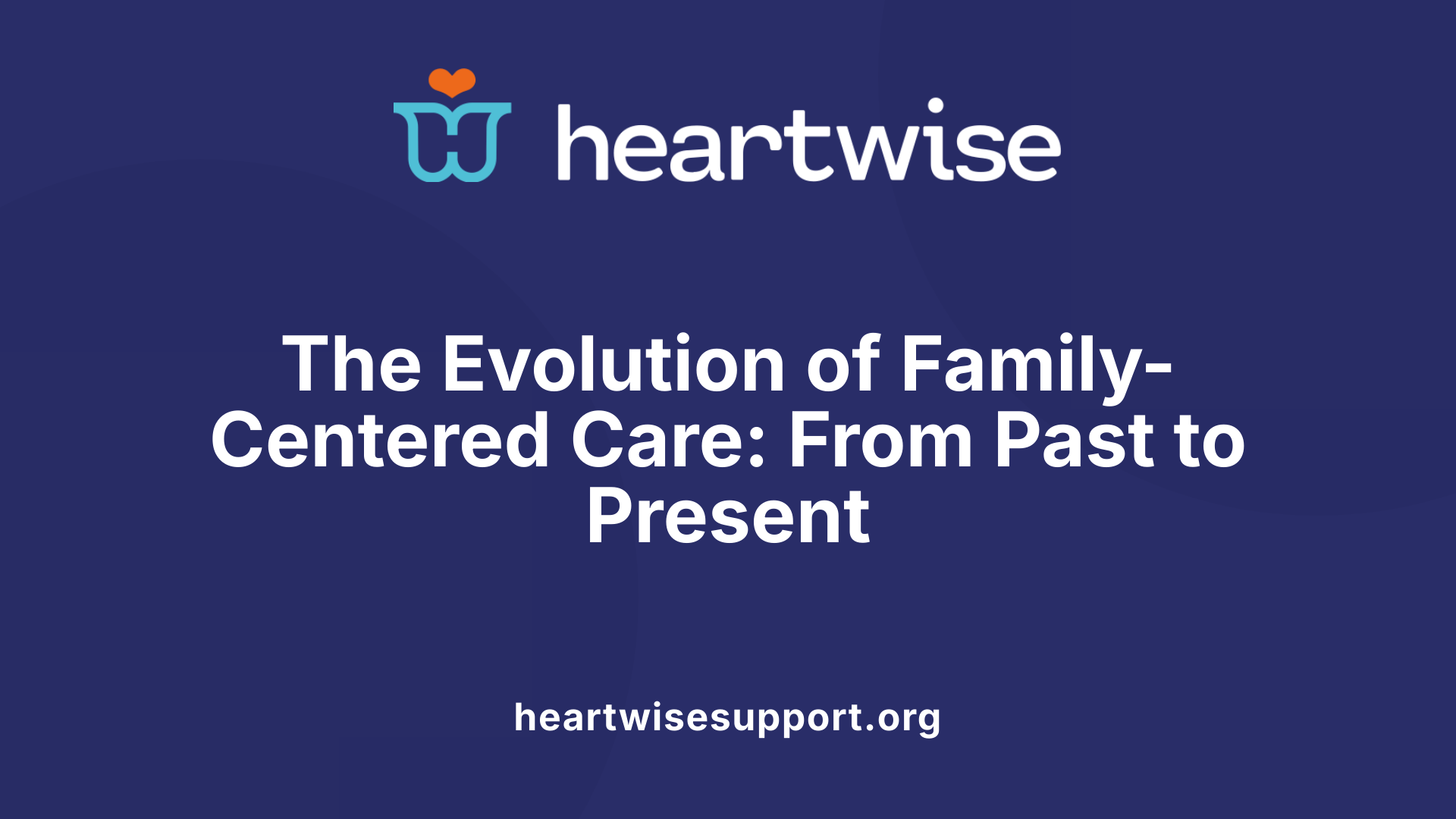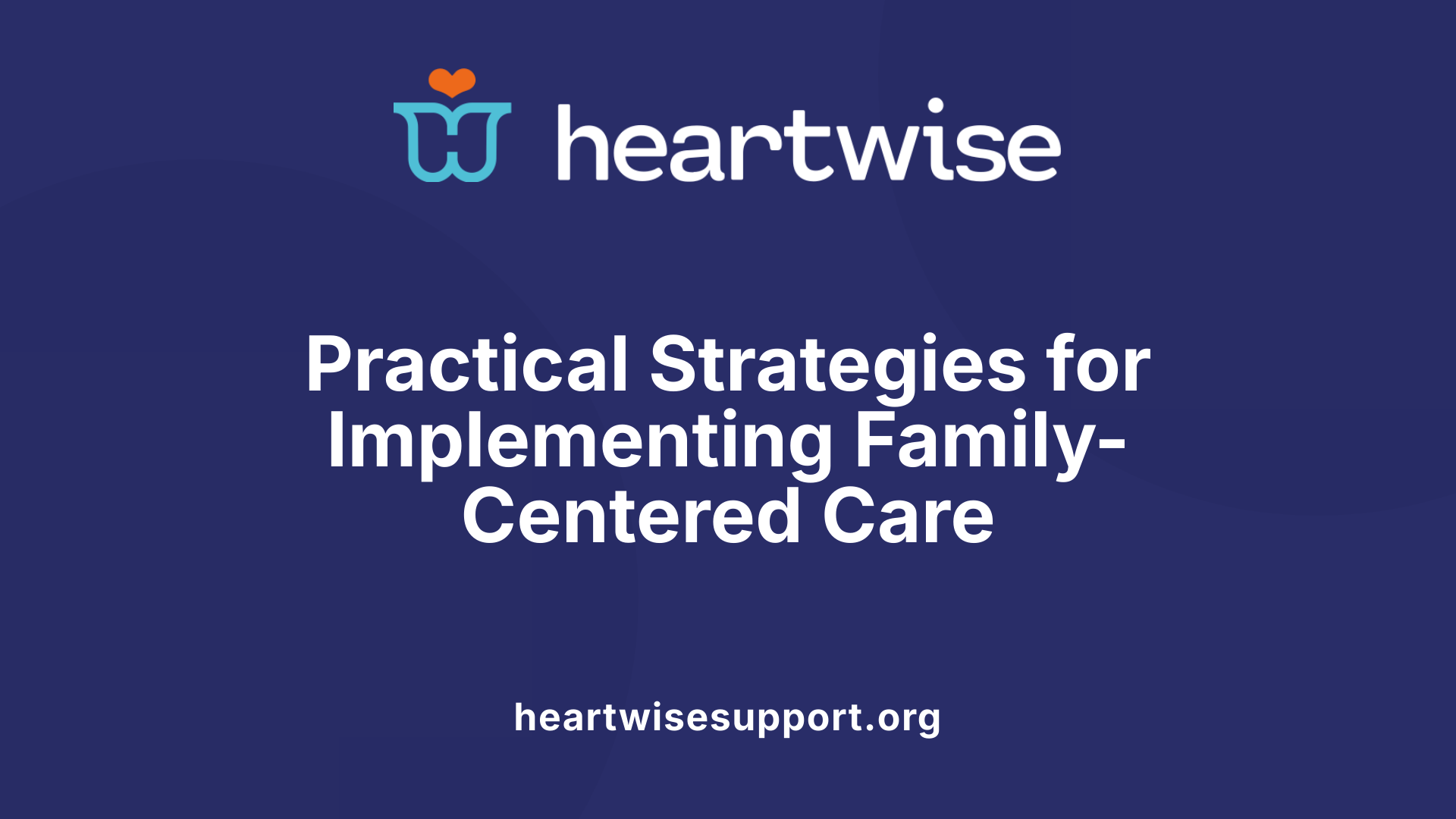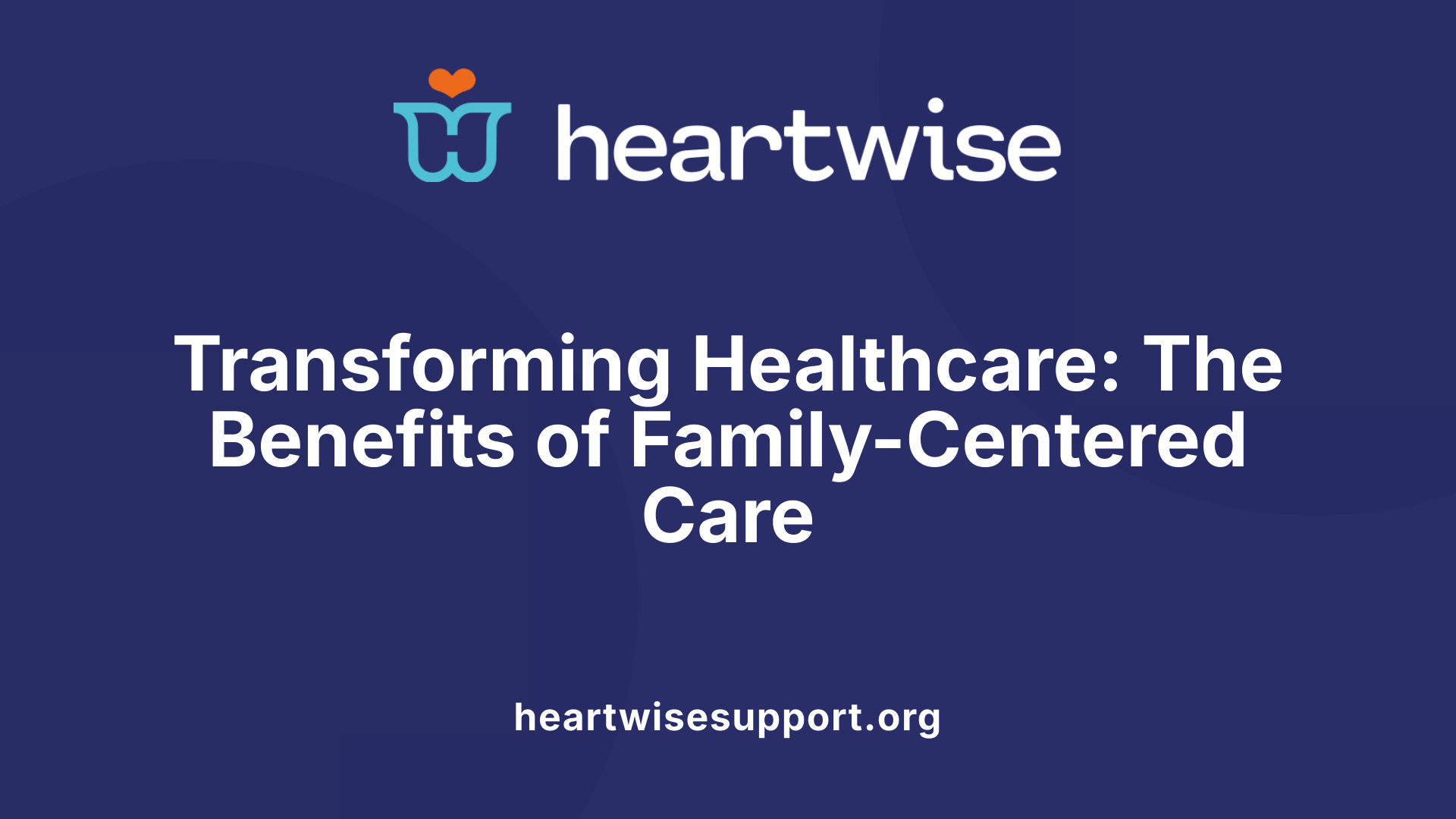Understanding Family-Centered Care and Its Principles
Family-centered care (FCC) has emerged as a cornerstone of modern healthcare, emphasizing collaboration between families and health professionals. This approach is grounded in respect, shared decision-making, and recognizing families as vital partners in the health and well-being of patients across all age groups and care settings. By prioritizing the family’s role, FCC fosters trust and promotes tailored, effective care that improves outcomes and satisfaction.
Fundamentals and Principles of Family-Centered Care

What is family-centered care and what are its core principles?
Family-centered care (FCC) is a healthcare approach that views the family as a vital part of the care team, actively involving them in decision-making, planning, and care processes. It emphasizes mutual respect and collaboration between families and healthcare professionals to improve health outcomes and patient satisfaction.
The core principles guiding FCC include respect for family diversity, values, and cultural backgrounds; sharing complete, accurate, and timely information to foster trust; encouraging active family participation and shared decision-making in treatment planning; and promoting collaboration on policy development, quality improvement initiatives, and care transitions. Accessibility, health literacy, and recognizing the family's strengths are also fundamental aspects.
Building strong, trusting relationships is central to this approach. Healthcare providers support families by respecting their unique perspectives, emotional needs, and coping strategies. By involving families in care planning and policy development, FCC creates a respectful environment where families feel empowered and valued.
Implementing FCC effectively leads to better health outcomes, higher satisfaction levels, and a more inclusive healthcare environment. This model recognizes that families bring valuable insights and resources that enhance the child's recovery and well-being, fostering a partnership rooted in mutual respect and shared goals.
Historical Roots and Development of FCC Models

What is the historical development of family-centered care models?
Family-centered care (FCC) has its roots in the mid-20th century, emerging as a response to traditional, often paternalistic pediatric healthcare models. Post-World War II societal changes, along with increased advocacy by families and healthcare professionals, set the stage for this shift. Early efforts focused on recognizing the emotional and psychological importance of family involvement, moving away from the previous approach that often excluded parents from the bedside and decision-making processes.
Key research by psychologists like John Bowlby and James Robertson played a pivotal role in advancing FCC. Bowlby’s attachment theory emphasized the importance of consistent emotional bonds, while Robertson highlighted the psychological harm caused by unnecessary separation during hospitalization. Their work underscored the need for families to be active participants in their children’s care to promote healthy development.
Legislative milestones further solidified FCC principles. The 1959 Platt Report in the United Kingdom was instrumental, advocating for active parental involvement and recommending that hospitals adopt policies that support family presence and participation. Similarly, policies across various countries began to prioritize family engagement, viewing it as essential to the child's recovery and well-being.
Over subsequent decades, these foundations influenced policy shifts, institutional practices, and the development of comprehensive FCC frameworks. Today, FCC is considered standard practice in pediatric healthcare, emphasizing mutual partnership, respect, and collaboration between families and providers to improve health outcomes, satisfaction, and emotional well-being.
Implementation Strategies and Practical Applications of FCC
 Family involvement in bedside rounds and decision-making processes is central to effective family-centered care (FCC). Healthcare providers actively include families in bedside discussions, allowing them to participate directly in care planning and management. This approach helps ensure that families' perspectives and preferences shape treatment decisions, fostering trust and collaboration.
Family involvement in bedside rounds and decision-making processes is central to effective family-centered care (FCC). Healthcare providers actively include families in bedside discussions, allowing them to participate directly in care planning and management. This approach helps ensure that families' perspectives and preferences shape treatment decisions, fostering trust and collaboration.
Policies like the Medical Home model and family-centered rounds are instrumental in promoting family participation. The Medical Home provides a trusted, coordinated care environment where families can access comprehensive services, while family-centered rounds involve families in bedside discussions, enabling them to voice concerns, ask questions, and contribute to decision-making.
To support these practices, healthcare professionals receive targeted training focused on communication skills, cultural competence, and health literacy. Such training empowers staff to convey information clearly, respect diverse backgrounds, and engage families effectively. Institutions embed FCC principles into routine practices, emphasizing respectful interactions and transparent sharing of information.
Practical implementation also involves developing policies that support family engagement, providing resources like interpreter services, educational materials, and support programs. Hospitals like Stanford Children’s Health exemplify this, offering parent mentor programs, weekly gatherings, and accessible resources to promote active participation.
Finally, fostering a culture of respect, open communication, and shared decision-making creates an environment where families feel valued and empowered. When families are partners in care, outcomes improve, and satisfaction increases, demonstrating the tangible benefits of applying FCC principles in everyday healthcare settings.
Impact of FCC on Outcomes and Healthcare Practices

How does family-centered care impact patient outcomes and healthcare practices?
Family-centered care (FCC) plays a crucial role in transforming healthcare quality by promoting a collaborative relationship between families and healthcare providers. This approach emphasizes respecting family roles and involving them actively in care decisions, which enhances overall treatment effectiveness.
One of the most notable impacts of FCC is the improvement in clinical outcomes. In pediatric settings, FCC has been linked to faster weight gain in infants, higher rates of successful breastfeeding, and better management of chronic conditions like asthma and diabetes. It also helps in reducing the length of hospital stays by promoting early discharge and preventing complications.
Beyond medical metrics, FCC significantly boosts family satisfaction and confidence. When families feel heard, respected, and involved, they are more likely to trust the healthcare team, adhere to treatment plans, and participate in ongoing care at home. This increased engagement supports emotional well-being and strengthens the natural bond between the child and family, providing emotional comfort during challenging health episodes.
Healthcare practices also see positive shifts through FCC integration. By fostering open communication and shared decision-making, FCC reduces unnecessary medical interventions and resource use. It encourages healthcare providers to collaborate with families in planning and delivering care, leading to safer practices and fewer medical errors. Importantly, FCC contributes to cost savings by decreasing emergency visits, hospital readmissions, and duplicated tests.
In summary, family-centered care improves the safety, efficiency, and quality of healthcare by aligning medical processes with patient and family needs. Its influence extends across clinical outcomes, satisfaction levels, and organizational efficiency, making it a vital component of modern healthcare delivery systems.
Resources, Education, and Policy Frameworks Supporting FCC
What resources and educational approaches are available for implementing family-centered care?
Implementing family-centered care (FCC) is supported by a variety of resources, including guidelines, training programs, policy frameworks, and practical tools provided by reputable organizations such as the Institute for Patient- and Family-Centered Care (IPFCC). These resources help healthcare providers foster principles like dignity, respect, information sharing, and active family involvement.
The IPFCC offers comprehensive materials such as books, videos, reports, self-assessment tools, and downloadable guidance documents that emphasize family engagement in decision-making. They also provide webinars, leadership development series, and online communities to facilitate continuous learning and sharing best practices.
Specific toolkits, like 'Partnering with Patients and Families to Enhance Safety and Quality,' have been developed to guide healthcare teams in effective family engagement strategies. These tools support the integration of FCC principles into everyday practice, ensuring that families are active partners in care.
Professional organizations, notably the American Academy of Pediatrics, endorse FCC policies and provide additional standards tailored for pediatric care settings, including emergency care protocols. These organizations also produce educational materials and guidelines that promote consistent application across different healthcare environments.
Educational approaches to embed FCC into routine practice include experiential learning opportunities, structured workshops, and ongoing mentorship programs. These methods allow healthcare workers to develop practical skills, deepen their understanding of family involvement, and foster a culture that prioritizes family-centered principles. Through these diverse resources and educational strategies, healthcare institutions can effectively implement and sustain FCC, ultimately improving care quality and patient satisfaction.
Incorporating Family-Centered Care for Better Healthcare Outcomes
Family-centered care represents a transformative approach in healthcare that aligns clinical excellence with compassionate, inclusive practices. As a philosophy rooted in respect, partnership, and mutual engagement, FCC improves health outcomes, patient and family satisfaction, and healthcare efficiency. Successful implementation involves ongoing education, resource development, and policy support, which together foster environments where families are empowered and healthcare providers work collaboratively to deliver personalized, safe, and effective care. Embracing FCC is essential for advancing patient-centered health systems that respect the diversity and unique needs of every family.
References
- Family-Centered Care: Current Applications and Future Directions in ...
- Patient- and Family-Centered Care: It's Not Just for Pediatrics Anymore
- Towards a universal model of family centered care: a scoping review
- What is PFCC? - Institute for Patient and Family-Centered Care
- The Importance of Family-Centered Care
- The power of patient- and family-centered care
- Family-centered care - PMC - PubMed Central
- About Family-Centered Care - AAP
- The importance of family-centred care - FutureLearn











